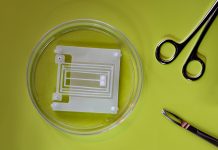Artificial intelligence (AI) models can change the world of medical diagnostics
This innovative model, a “medical diagnostics expert,” can accurately identify tumours and diseases in medical images, providing reasons for each diagnosis through visual maps.
Healthcare technology: Improving medical diagnostics
The development of this AI tool marks a crucial advancement in the field of healthcare technology, promising to facilitate the disease detection and diagnosis process.
Led by Sourya Sengupta, a graduate research assistant at the Beckman Institute, the study introducing this model was recently published in IEEE Transactions on Medical Imaging.
Addressing the Black box problem
An impressive aspect of this AI model is its transparency, which addresses the longstanding challenge of the “black box” problem in artificial intelligence.
Unlike traditional AI systems that provide vague decisions, this new model offers clear and understandable explanations for its diagnoses, enabling doctors to understand and verify its reasoning easily.
This transparency promotes trust between healthcare professionals and patients, enhancing communication and facilitating informed decision-making.
Enhancing trust between healthcare workers and AI
Using fundamental concepts from linear models, they engineered a sophisticated AI system capable of interpreting itself and generating visual maps that explain the decision-making process.
With its ability to provide clear and interpretable explanations for diagnostic decisions, this AI tool has the potential to reshape the doctor-patient relationship, encouraging collaboration, understanding, and trust.
Assisting healthcare professionals
The successful integration of transparent AI models into clinical practice has the potential to relieve the burden on healthcare systems worldwide.
By assisting healthcare professionals in the timely detection and diagnosis of diseases, this technology can help optimise resource allocation, reduce wait times, and improve patient outcomes.
“In many developing countries, there is a scarcity of doctors and a long line of patients. AI can be helpful in these scenarios,” Sengupta said.
Challenges
The adoption of AI in healthcare is challenging. Concerns surrounding data privacy, algorithm bias, and regulatory compliance must be carefully addressed to ensure these technologies’ ethical and responsible deployment.
Ongoing research and development are essential to refine and optimise AI models for real-world clinical settings.











